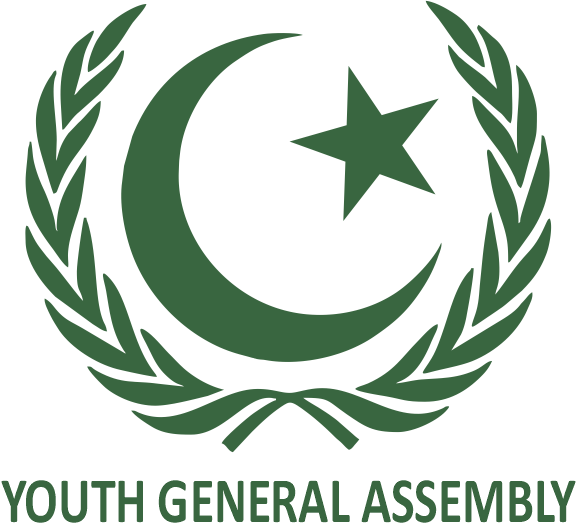Executive Summary

Framework
1- Political Participation:
- Ensure youth representation in administrative committees and technical working groups and ensure their engagement in the formulation of relevant policies and programs.
- Create structures and platforms for political engagement of youth at national, provincial, and local levels.
- Revitalize online and in-person platforms and institutionalize engagement of youth in the parliamentary processes at the federal and provincial levels.
- Ensure increased representation of the youth in decision-making roles by increasing the youth representation quota at policy forums.
- Develop a parliamentary internship/ placement program for young people to first-hand experience political debate and decision-making processes.
2- Policy and Civic Engagement:
- Include youth in the design, implementation, monitoring, reporting, and evaluation of instruments, strategies, and programs that relate to them.
- Ensure that laws that affect young people include youth participation through consultation processes. Ensure youth contributions to debates on policy- and law-making, and resource allocation.
- Develop a youth-led national research initiative to better understand the nuances of the challenges, aspirations, and opportunities faced by specific youth groups, especially marginalized youth so that programming is more responsive.
- Include youth in academia and inter-governmental organizations for regular stocktaking and technical guidance on youth programming at the national and provincial levels.
- Continue to encourage more provincial and local governments to create youth community centres (Jawan Markaz) with free internet, meeting rooms, and easy access to information on education, jobs, civic opportunities, peer counselling, etc.
3- Education:
- Improve access to quality education at all levels (including higher education) and in all geographical and social contexts, allowing all youth the chance to acquire knowledge and skills which will serve them for their future (this includes ensuring online learning is more effective).
- Integrate the 2030 agenda in the educational fabric to improve access to quality education on sustainable development at all levels and in all social contexts.
- Transform society by reorienting education and helping youth develop knowledge, skills, values, and behaviours needed for sustainable development.
- Modernize/update the curriculum and improve teacher training to help reorient education content and methodologies thus allowing youth to develop knowledge, skills, values, and behaviours needed to become successful individuals in the future.
- Enlarge the Teach for Pakistan program to incentivize university graduates to teach for one or two years after graduation. Promote the creation and advancement of Inclusive Education through mainstreaming disability within schools at all levels across Pakistan.
4- Business and Entrepreneurship:
- Establish entrepreneurship support services cell (training, loans, mentorship, linkages) to ensure services are more accessible and relevant to young people and facilitate access to the market.
- Develop a youth national entrepreneurship network to coordinate efforts by government and private institutions, business incubation centres, and investors.
- Develop a network of mentors with outreach in small cities through local universities and colleges to support grassroots entrepreneurship and provide equal opportunities to youth across all regions.
5- Human Rights and Peacebuilding:
- Produce awareness campaigns to educate youth about human rights and the relevant National and Provincial bodies who can be contacted in case of any complaints or inquiries.
- Launch a comprehensive program/package for socio-economic empowerment of the minority youth communities including the provision of financial assistance and capacity building.
- Build collaborations/opportunities for young peacebuilders from all over the world to meet, discuss common regional and thematic issues, and form partnerships and plans for future collaborations.
6- Law, Justice and Order:
- Ensure young women are provided safety training against harassment, violence and threat to life.
- Ensure policing and justice services are youth-friendly, and support functions are established to further make them accessible to vulnerable youth groups, including ex. Juvenile prisoners/ drug addicts.
- Enhance access to legal aid for young offenders to accelerate rehabilitation and reintegration into society.
7- Skills Development:
- Develop young people’s digital skills and build an enabling environment for innovation, entrepreneurship and job creation in Pakistan’s digital economy.
- Ensure skills development programs are relevant to the future market, encourage internships, apprenticeships & job placements in Govt. and private sector to help youth get their foot in the door.
- Create avenues to provide non-formal education and skills training for young farmers – in crops management, farm machinery management, livestock, agribusiness, etc.
8- Information Technology:
- Launch the ‘female youth in tech’ initiative for young women and girls in the tech space, leading to increased self-efficacy and development of skills relevant to success in the workplace such as decision-making and working well with others.
- Youth-friendly inclusive information and materials to be developed with young people themselves, through both traditional and inclusive technology mediums, such as the internet, SMS, etc.
9- Social Welfare:
- Expand scope, objectives, and coverage of social protection under “Ehsaas program” ensuring social protection to vulnerable groups including youth in the informal economy.
- Establish clear graduation pathways for youth from Ehsaas program to programs with more advanced training/support under Kamayab Jawan program among others.
- Develop integrated social protection and economic empowerment program for youth living in slums and squatter settlements.
